So, you are interested in creating a new website but aren’t sure exactly what type of websites are out there and suitable for you?
We’ve all been there!
Not all websites are created equal, and they all serve their unique purpose.
Some sites sell things, and some are just a fun place to have as a creative zone.
Don’t worry; we are here to help set your mind at ease and make this decision as easy as possible for you!
Today we will be going over the different types of websites out there that are just waiting to be created.
1. eCommerce Websites

eCommerce websites are primarily for selling your products online.
Say, for instance, you have a local business selling honey and accessories in your town, and you wanted to start selling online; this type of website is right up your alley.
eCommerce websites are kind of like virtual stores anyone can check out and buy things from.
Your website visitors get to walk in and check out the product pictures and read reviews from past customers to see what past customers say and if the experiences relate to what they are after.
The beauty of eCommerce websites is that they help you get your products in front of more people in different places worldwide as long as they have access to an internet connection.
An example of this would be Witch Baby Soap:
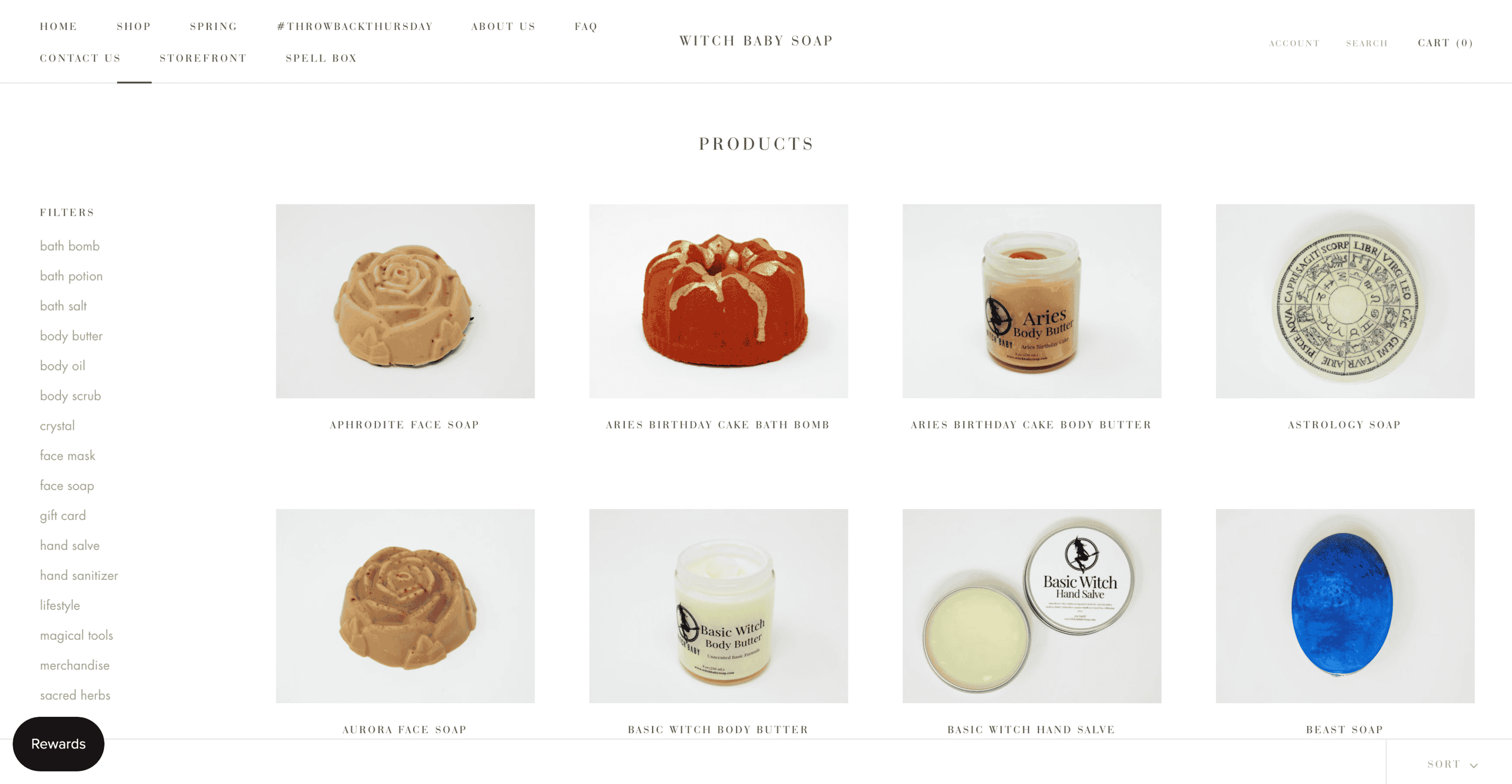
Image Source: Witch Baby Soap
My roommate is a huge fan of this company, and I often find their products floating through the mail constantly.
Another example, and I’m sure you’ve already heard of them, Amazon:
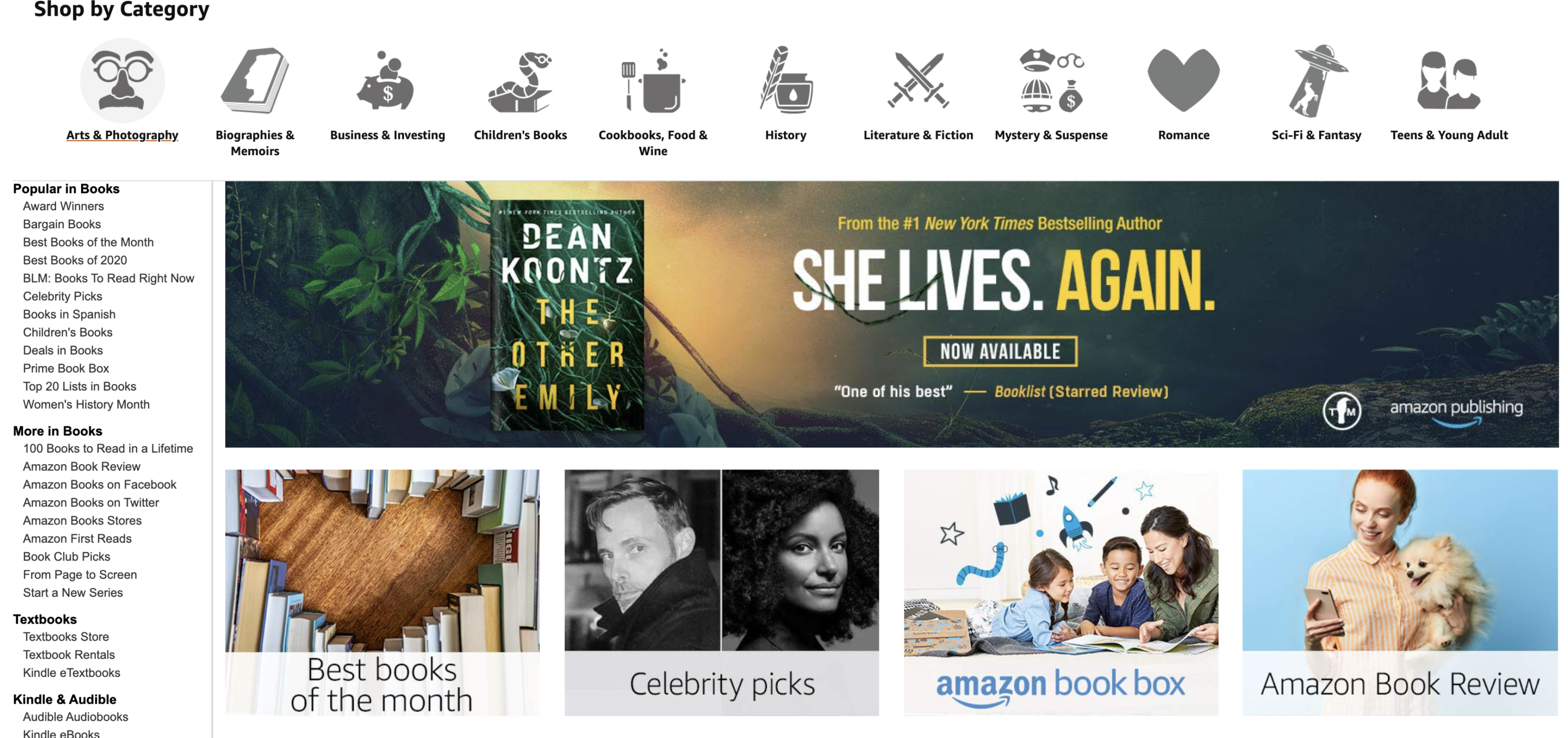
Image Source: Amazon
Books are my addiction, and I’m constantly on Amazon to buy new ones to add to the collection on topics I’m interested in them.
2. Portfolio Websites

Portfolio websites are primarily used as a digital resume for Content creators, web designers, or anyone that wants to showcase their work.
It’s a place where you can put anything and everything that surrounds what you do professionally.
It’s a place where people can see all of your work in one centralized location.
Whether it’s for keeping track of your progress or to show that you’ve had experience in your industry and want a place to show social proof for new clients and new gigs down the road.
Portfolios are great types of websites for anyone in creative work because they help communicate all of your marketable skills effectively.
Rather than just telling people about your work, show them and let them experience it on their own.
3. Magazine Websites

Magazine websites are primarily written content-driven, focused on the role of journalism around your particular industry.
These sites can be around particular topics like fashion, marketing, sports, or whatever industry you would like to become a news source.
The role you are taking on with this type of website focuses on putting out relevant information consistently for people to be entertained by or learn something from.
An example of this type of website is The Minority Mindset:
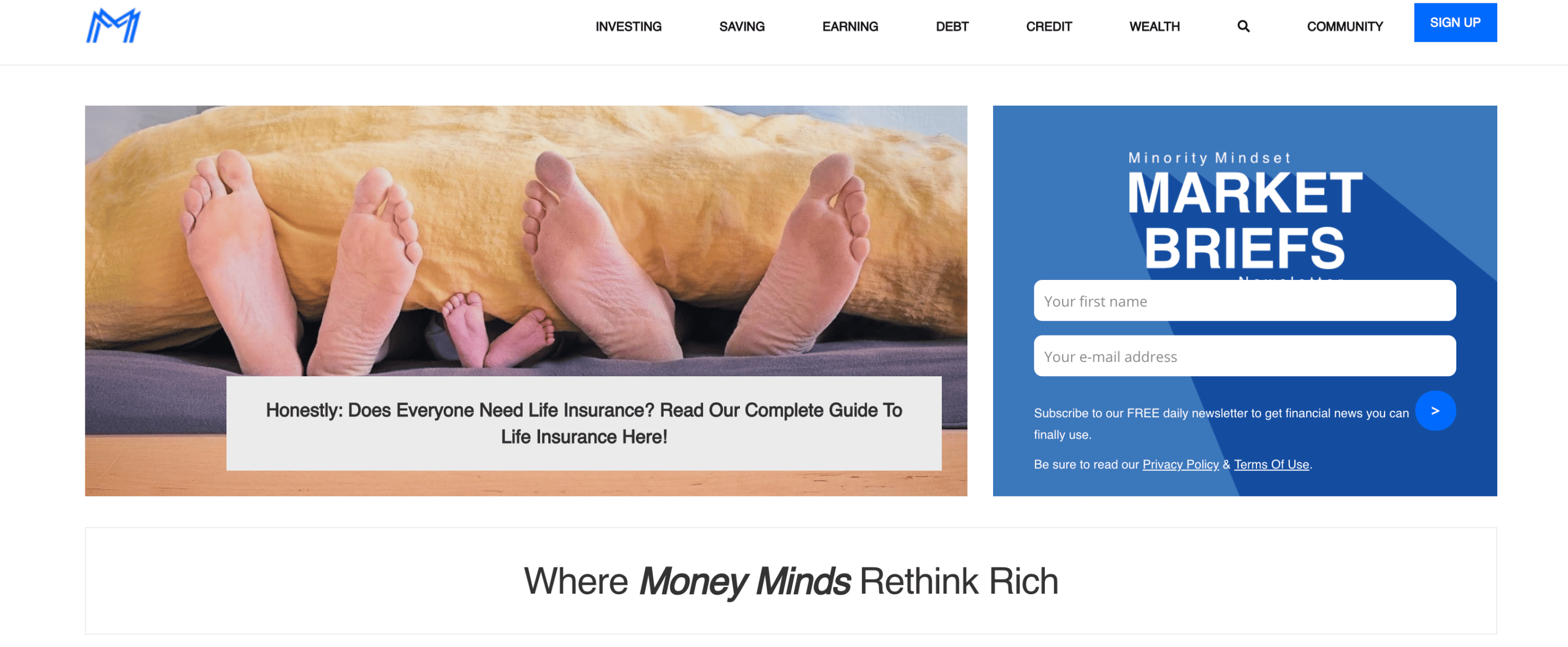
Image Source: Minority Mindset
4. Blog Websites

Blogs are niche-focused websites about personal interests you have, and you know that other people out there also have.
It’s similar to a magazine website, except it’s more specific in its content and topic reach.
The goal of these websites is to answer questions that people are asking about specific topics.
An example of this would be Dirt Bike Planet:
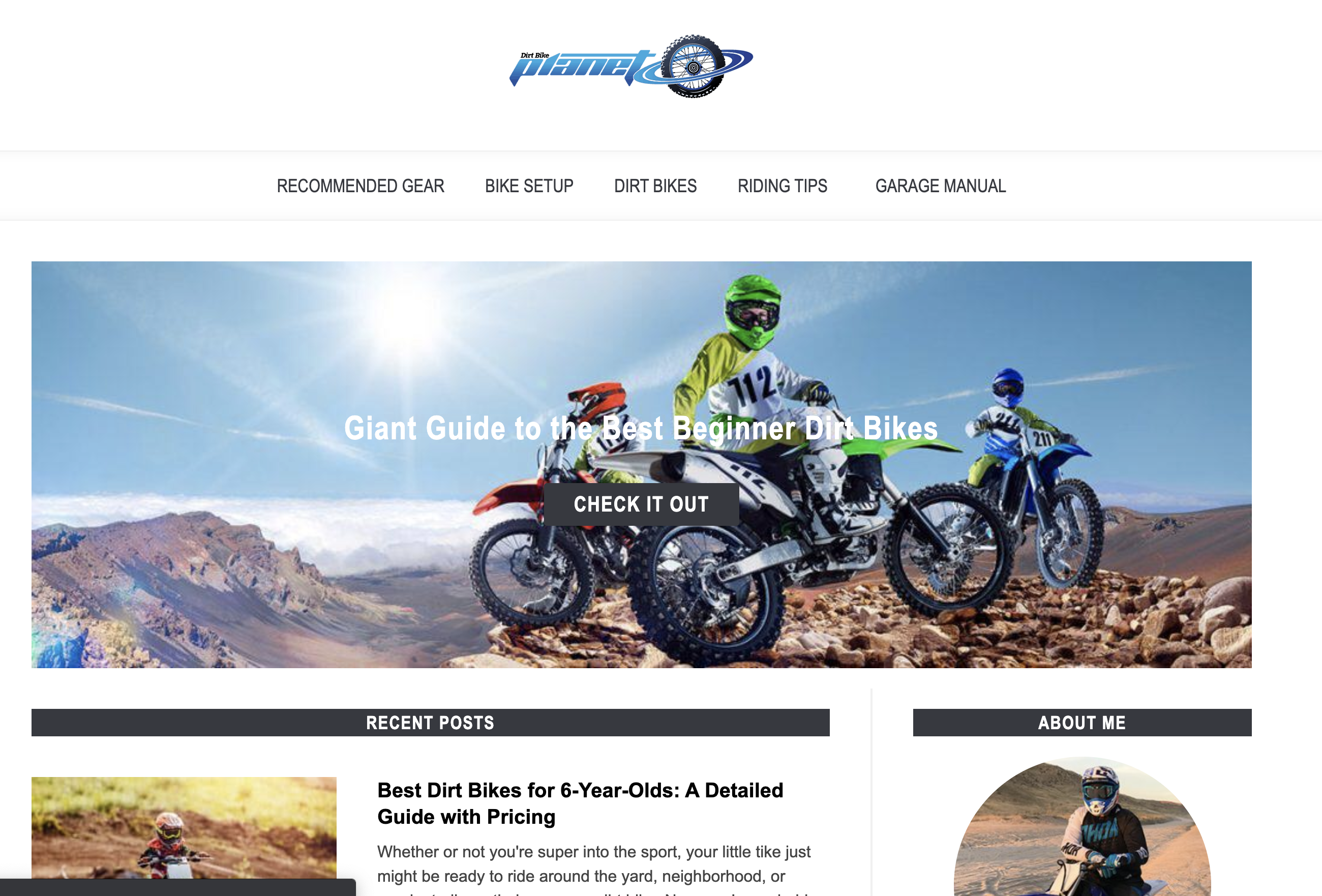
Image Source: Dirtbike Planet
Blogs become a centralized place for all topics within specific industries of your choosing.
This is an excellent website for people to get started with when trying to learn about designing a website and understanding how everything works with content creation and generating revenue online.
A blog is a great way to get your foot in the door and start learning the fundamentals of content creation and getting traffic online.
5. Forum Websites

Forums are like giant chat rooms that people gather to talk about their favorite topics in any given industry.
You can learn from others or meet like-minded people that love a given topic or subject as much as you do.
Do you love dogs and everything about them?
There’s a forum for that!
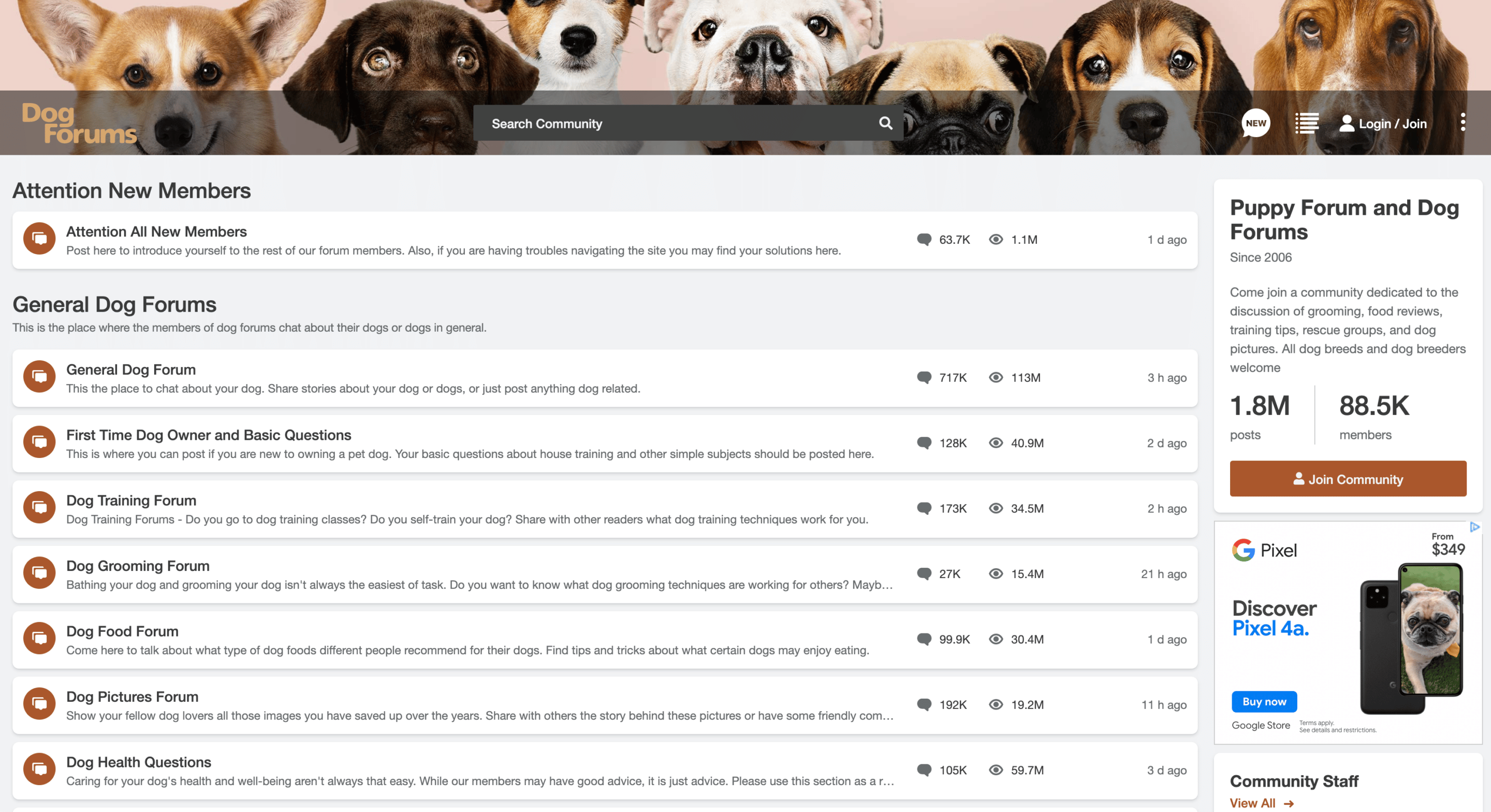
Image Source: Dog Forums
Are you an avid football fan and love talking about the sport?
You bet there is a forum out there for that too.
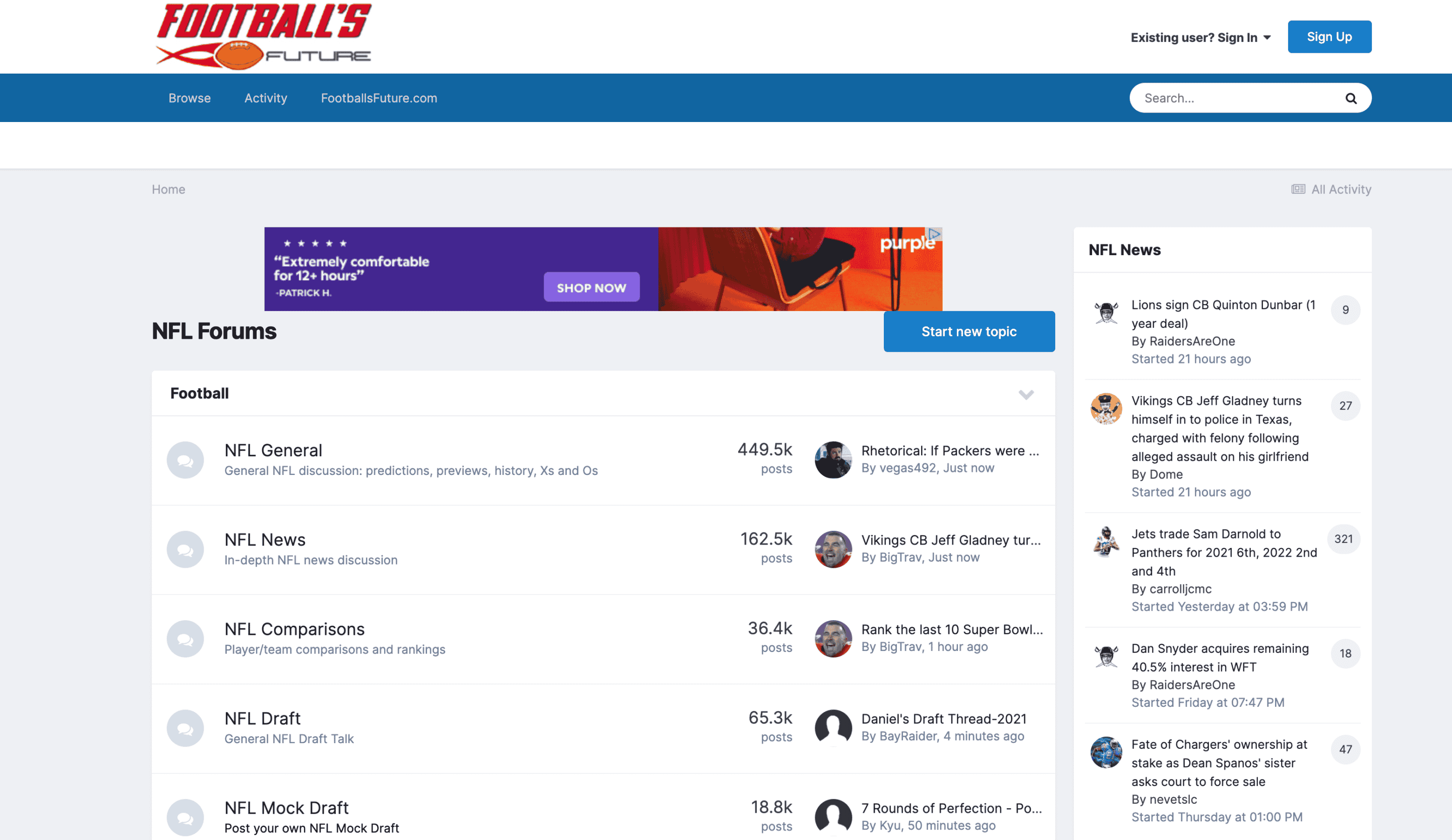
Image Source: Footballs Future
If you want to be the hub where the conversation is happening around the topic you are knowledgeable or interested in, running your forum can be a fantastic choice for you to consider.
To find forums in your topic of interest, type in “(your topic) forums,” and you should be able to find what you are looking for.
6. Educational Websites

Are you a master of your craft?
Do you have a well-rounded knowledge of fun topics people would be interested in learning about?
Educational websites are platforms built around courses and informational products.
They are places where thought leaders get to spread their knowledge with people looking to learn.
If you’re interested in teaching people all about the topics you love talking about, then an educational website might be for you.
When creating your online education hub, there are some resources out there to be aware of.
Platforms like Teachable and Kajabi make this process super simple and straightforward.
It is just something to be aware of if you aren’t tech-savvy and want to bypass learning how to create a WordPress website or similar content management systems.
7. Directory Websites

Directory websites make it easy to find businesses online.
This type of website is excellent for the people interested in being the middleman between customers and businesses those customers are looking for.
For example, suppose you are looking for good restaurants in your area.
You could type “restaurant directory” into google, and a ton of restaurant directories will pop up telling you which places there are around you based on why type of food you are in the mood for.
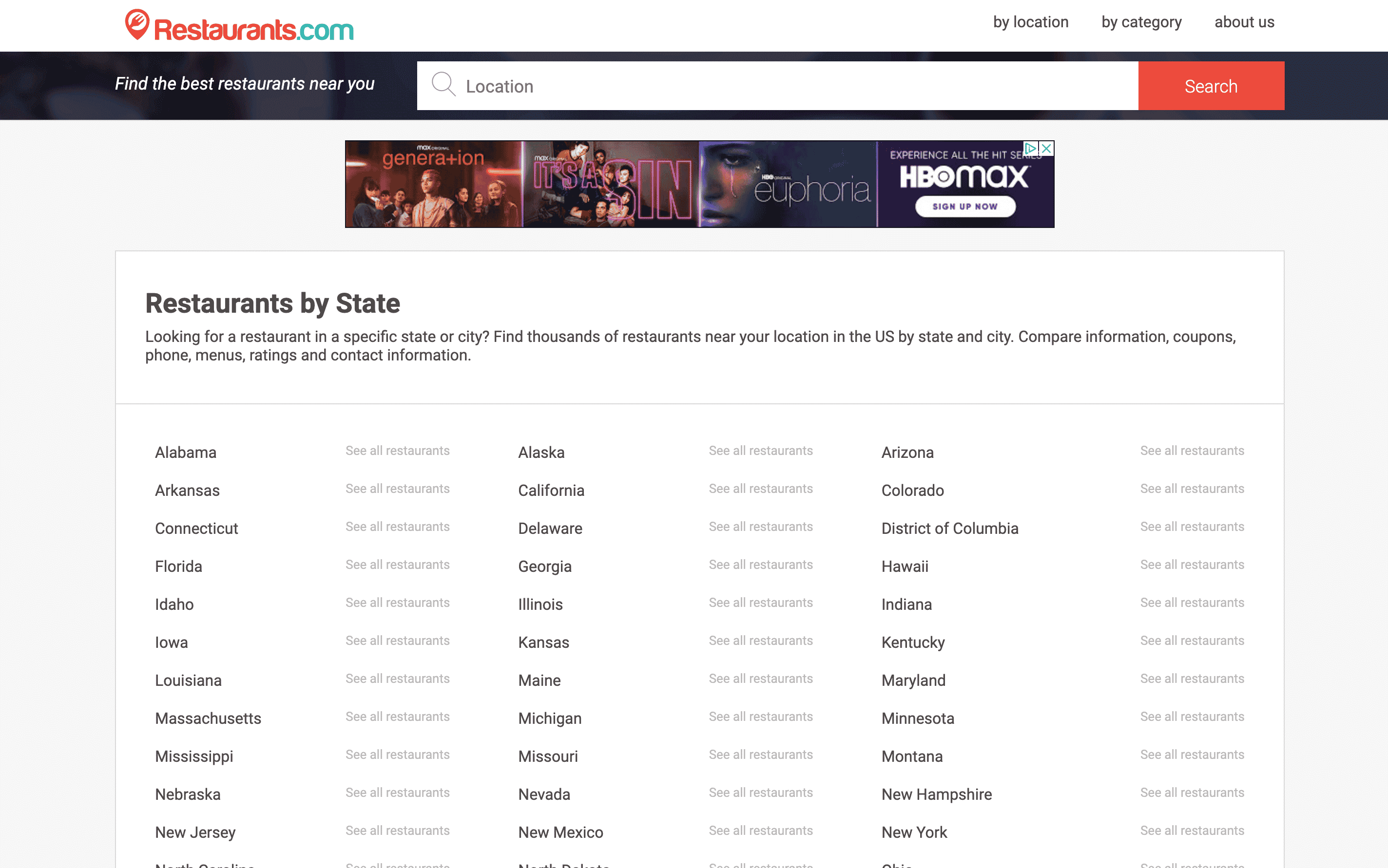
Image Source: Restaurants
This website can be modeled around any industry that people are trying to find online.
A good directory points you in the direction of the business you are looking for.
8. Brochure Websites

Brochure websites are the equivalent of a digital informational pamphlet + business card.
It’s the type of website for small businesses that know they need an online presence but don’t want to spend too much time getting technical and having an over-the-top website.
They are comprised of a few pages that give a little bit of information about what this business does and its services, along with making it easy for the visitor to contact the business owner.
Brochure websites used to be very popular about 10-15 years ago when businesses realized that they needed to have a presence online but didn’t plan to use it as a marketing channel.
Some sites like this still exist; however, for the most part, they are on the brink of not cutting it anymore.
Unless you plan to strictly advertise your website 24/7 to gain customers, this type of website is hard to sustain.
Consider using this type of website as a staging ground while you are working on your actual site.
9. Small Business Websites

Every small business should have a website by now, as it’s pretty much the standard across the board.
It’s gotten to the point where not having one makes you look unprofessional and illegitimate even if you have an actual physical location.
A small business website is a step above a brochure website where it acts as a business card, but it also is a place for people to find more information on products or services that you have the offer.
It’s a place where you can show off social proof from past happy customers, make it easy for people to buy products without actually coming into your store, answering frequently asked questions and anything else you could imagine.
Small business websites make it easier for your customers to interact with your business outside of the physical location.
A good website will keep your business running even when you’re not there and acts as a 24-hour a day sales team bringing in more customers and making it easier for people to do business with you.
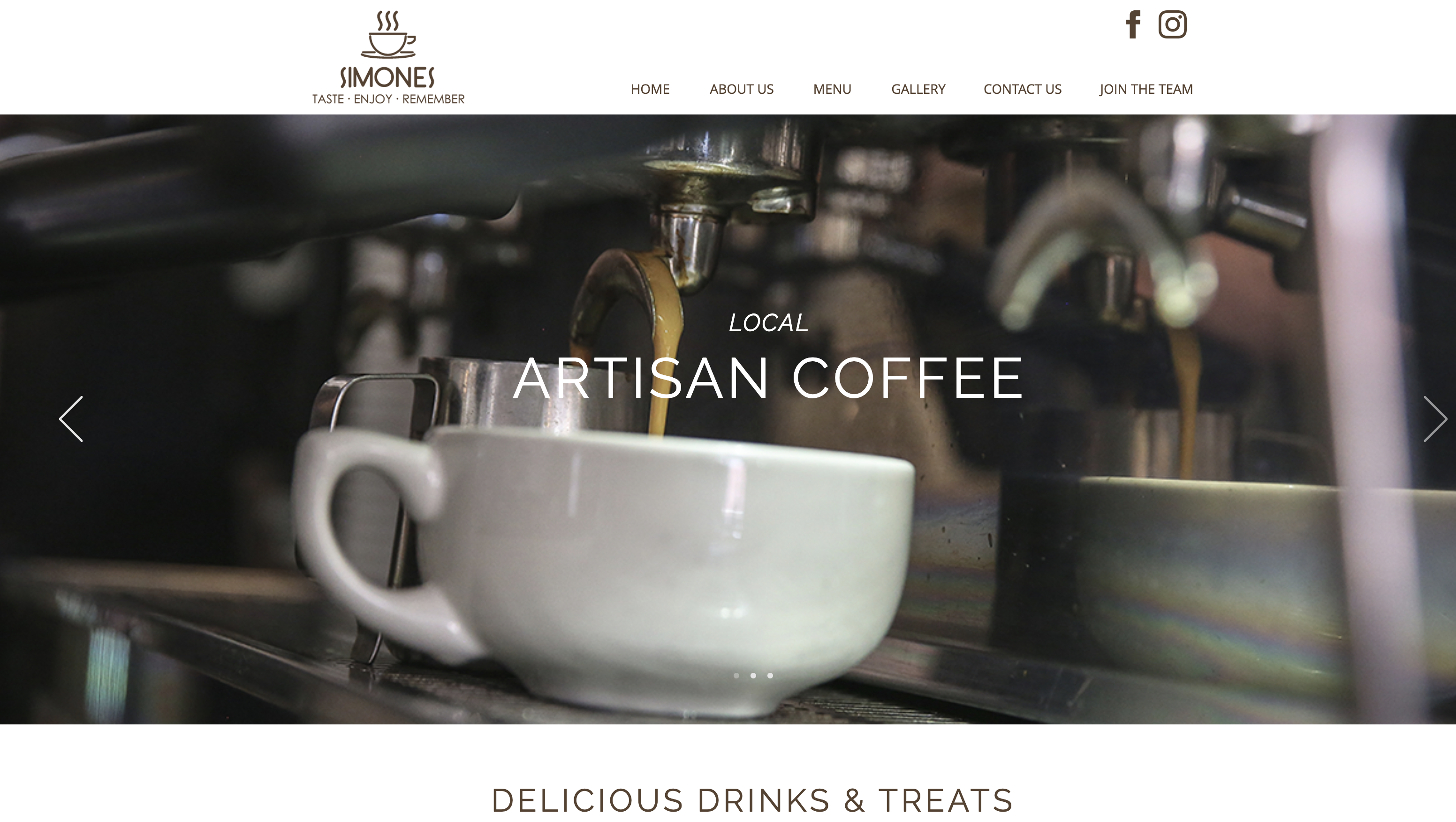
Image Source: Simones Coffee
10. Personal Websites

Personal websites are similar to portfolios, except they are less oriented towards professional endeavors and more towards personal interests and thought clarity.
If you’re looking for a place to make content just for the sake of producing content, or you enjoy writing or making videos, and you want to have a place to keep track of your progress, and how much you put into the world, this is for you.
Making a personal website revolves less around making money and more about personal growth and development.
It’s a place that people create to either write about and express their feelings or insights and share them with people who may find it interesting on the internet.
Over time, the website may get more attention, which could open the door for the website to become profitable.
However, a personal website’s primary goal is finding or doing what you enjoy creating and giving others the chance to enjoy it with you at the same time.
11. Lead Generation Websites

This type of website it’s all about generating more revenue for your business or other businesses, depending on how you position it.
These websites are optimized to attract people that have the potential of being new customers to your site and either provide the contact information you can later use to get in touch for a sales call or sell to companies who are willing to pay for this information.
A “Lead” is just another way of saying potential customers for businesses.
All businesses need leads technically, but some websites are explicitly built for bringing in more customers.
You can’t technically have a business that doesn’t have any customers; otherwise, eventually, they will have to close up shop.
The best comparison to lead generation websites would be directories.
Of course, with one key difference, lead gen can be more personalized and tailored to what people need at every stage of their customer journey.
Suppose someone is in the informational stage of the buying funnel.
In that case, you can create educational content like guides or how-tos that break down everything for people in simple terms.
Then you can help guide them towards making better-educated decisions around your industry.
When they are ready to take the following steps and talk to a sales rep, they will happily input their contact info into your website and become a potential customer.
12. Non-profit Websites

Non-profits, just like regular businesses, need exposure online if anyone is ever going to find them and the causes they support.
Non-profit websites are a place where people can educate themselves on the opportunities available to give back.
Having a website as a non-profit helps legitimize the causes that these organizations are trying to back in the eyes of people who want to donate.
To accept donations, you will have to set up your site’s checkout pages similarly to an eCommerce website selling a product online.
Once correctly set up, this website enables your organization to easily accept donations from people with less hassle and get more exposure than you would usually when talking with people, face to face.
Image Source: Bill & Melinda Gates Foundation
Conclusion
There are many different types of websites and models out there for you to choose from, and hopefully, our list of the top choices helped you get a better idea of the direction you want to go in when creating your website.
Keep your end goal in mind when deciding what route is best for you.
Making the decision moving forward becomes a lot easier when you have a clear picture in your mind that you can eventually form into physical form.
Thank you for hanging out with us today; as always, we appreciate you!
If you enjoyed this article and would like updates when we drop more just like it, subscribe to our email newsletter below!








0 Comments